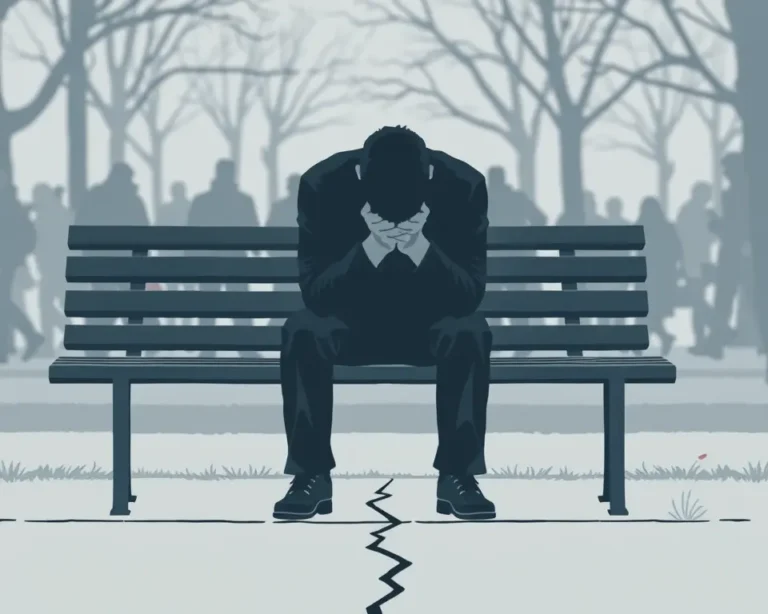While conversations around gender equality gain traction, the mental health challenges faced by men and boys are often overlooked. Societal expectations, traditional masculinity norms, and stigma contribute to a crisis where men are less likely to seek help, leading to higher rates of suicide and substance abuse.
The Stigma of Strength: How Masculinity Impacts Mental Health
Traditional masculine ideals, characterized by stoicism, independence, and control, create significant barriers for men seeking mental health support. Boys are often taught to suppress their emotions, viewing vulnerability as a sign of weakness. This can lead to:
- Difficulty expressing emotions: Men may struggle to define and articulate their mental health challenges due to a lack of emotional vocabulary and fear of judgment.
- Reluctance to seek help: The stigma surrounding mental health, coupled with the pressure to be self-reliant, prevents many men from seeking professional support. They fear being seen as weak or inadequate.
- Atypical symptom presentation: Depression in men often manifests differently than in women. Instead of sadness, men may experience irritability, anger, risk-taking behavior, or substance misuse, making it difficult to recognize the underlying issue.
- Self-medication: Men are more likely to turn to alcohol or drugs to cope with their emotional pain, which can exacerbate their mental health problems in the long run.
A 2023 survey by Verywell Mind and Parents revealed that only a slight majority of men feel comfortable expressing their feelings. This highlights the significant emotional constraint many men experience, making it harder for them to acknowledge and address their mental health needs.
The Numbers Don’t Lie: Men’s Mental Health Statistics
The statistics paint a concerning picture of men’s mental health:
- Suicide: Men die by suicide at a rate four times higher than women, accounting for three-quarters of registered suicide deaths in the UK in 2020.
- Depression: Over six million men suffer from depression each year in the U.S., but male depression often goes underdiagnosed.
- Substance abuse: Men are two to three times more likely to misuse drugs than women and are almost twice as likely to die from alcohol-related causes.
- Mental health disorders: 35% of men think they have had a diagnosable mental health condition at some point in their life.
- Lack of Communication: 40% of men have never spoken to anyone about their mental health.
These figures underscore the urgent need to address the mental health crisis among men and boys. The fact that men are more likely to die by suicide and substance abuse highlights the dire consequences of neglecting their emotional well-being.
Barriers to Care: Why Men Don’t Seek Help
Several factors contribute to men’s reluctance to seek mental health care:
- Stigma: The pervasive stigma surrounding mental illness, particularly for men, creates a culture of silence and shame. Men fear being judged, ridiculed, or seen as weak if they admit to struggling with their mental health.
- Masculinity norms: Societal expectations of men as strong, independent, and emotionally resilient discourage them from seeking help. Men may believe that needing help is a sign of failure or a violation of their masculine identity.
- Lack of awareness: Many men have poor mental health knowledge and may not recognize the symptoms of mental health conditions. They may also be unaware of the resources and treatment options available to them.
- Difficulty expressing emotions: As mentioned earlier, men often struggle to articulate their feelings, making it difficult to seek help and communicate their needs to healthcare professionals.
- Clinician bias: Some healthcare providers may hold biases or stereotypes about men’s mental health, leading to misdiagnosis or inadequate treatment.
- Lack of male-centered services: Mental health services are often designed with women in mind, which can make men feel uncomfortable or unwelcome. There is a need for more male-centered programs and resources that address the specific needs and experiences of men.
- Believing they need to solve their own problems: Many men believe they should be able to handle their problems independently and are reluctant to seek outside help.
Shifting the Narrative: Promoting Men’s Mental Health
Addressing the mental health crisis among men and boys requires a multi-pronged approach that challenges traditional masculinity norms, reduces stigma, and promotes help-seeking behavior.
Challenging Masculinity
- Redefining strength: Promote the idea that seeking help is a sign of strength, not weakness. Encourage men to embrace vulnerability and emotional expression as essential aspects of well-being.
- Role models: Highlight public figures, athletes, and celebrities who openly discuss their mental health struggles. Seeing successful men prioritize their mental health can inspire others to do the same.
- Education: Educate boys and young men about mental health and the importance of seeking help when needed. Teach them emotional literacy skills and encourage them to express their feelings in healthy ways.
Reducing Stigma
- Open conversations: Create safe spaces for men to talk about their mental health challenges without fear of judgment. Encourage open and honest conversations among friends, family members, and colleagues.
- Awareness campaigns: Launch public awareness campaigns that challenge stereotypes about men and mental health. Use relatable stories and images to promote empathy and understanding.
- Media representation: Encourage the media to portray men with mental health conditions in a positive and accurate light. Avoid perpetuating harmful stereotypes or sensationalizing mental illness.
Improving Access to Care
- Male-centered services: Develop mental health services that are tailored to the specific needs and preferences of men. This may include offering therapy groups for men, providing male therapists, and creating welcoming and comfortable environments.
- Accessibility: Make mental health services more accessible by offering online therapy, mobile clinics, and flexible appointment times.
- Training for healthcare professionals: Train healthcare professionals to recognize and address the unique mental health needs of men. Educate them about male depressive syndrome and other atypical presentations of mental illness in men.
- Early intervention: Implement early intervention programs in schools and communities to identify and support boys and young men who are at risk for mental health problems.
The Importance of Connection
- Social support: Encourage men to build strong social connections and support networks. Loneliness and isolation can exacerbate mental health problems, so it is essential for men to have people they can rely on for support.
- Community involvement: Promote men’s involvement in community activities and organizations. This can provide a sense of purpose and belonging, which can improve mental well-being.
The Path Forward
It is crucial to acknowledge that men, like all individuals, are complex human beings with their own unique struggles, vulnerabilities, and challenges. By challenging harmful notions of masculinity, reducing stigma, and improving access to care, we can create a society where men feel empowered to prioritize their mental health and seek help when they need it. An urgent shift in thinking is needed to help men who struggle, stressing the need to boost cultural and gender inclusivity, evidence-based approaches, and early intervention to improve gender equality. Making young men feel ‘excluded or alienated’ from gender discussions, which often justifiably focus on critical issues facing ‘women and marginalized groups’, “can leave men feeling resentful and lead to them feeling lonely, alienated, depressed.







